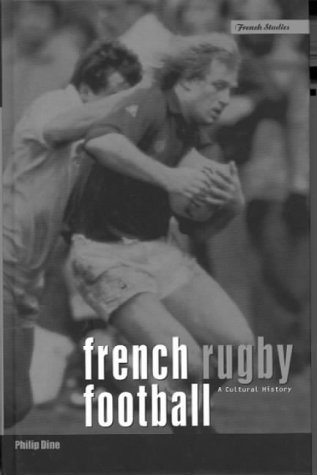

Most ebook files are in PDF format, so you can easily read them using various software such as Foxit Reader or directly on the Google Chrome browser.
Some ebook files are released by publishers in other formats such as .awz, .mobi, .epub, .fb2, etc. You may need to install specific software to read these formats on mobile/PC, such as Calibre.
Please read the tutorial at this link: https://ebookbell.com/faq
We offer FREE conversion to the popular formats you request; however, this may take some time. Therefore, right after payment, please email us, and we will try to provide the service as quickly as possible.
For some exceptional file formats or broken links (if any), please refrain from opening any disputes. Instead, email us first, and we will try to assist within a maximum of 6 hours.
EbookBell Team

0.0
0 reviewsAs France's oldest team sport, rugby football has throughout its 125-year history reflected major changes in French society. This book analyzes for the first time the complex variety of motives that have led the French to adopt and remake this rather unlikely British sport in their own image. A major site for the construction of masculine, class-based regional and national identities, France's tradition of 'Champagne rugby' continues to be as subject to dramatic upheavals as the society that produced it. The game's precocious professionalism and endemic violence have not infrequently caused the French to be cast as international pariahs. Such isolation, exacerbated by internal politics, has led the French not only to encourage the extension of the sport beyond its British imperial base (into Italy and Romania, for instance), but also to engage in some uncomfortable tactical alliances, most obviously with apartheid South Africa.
Taking his analysis both on and off the field, the author tackles these issues and much more: the relationship of sport and the state (including particularly the Vichy period and the period under de Gaulle); professionalization; the persistence of colonial and postcolonial structures (including the role of ethnic minorities); and gender issues - especially masculine identities. At the same time he links the evolution of the sport to the broader context of French socio-economic, political and cultural history.
This book will be essential reading for anyone interested in the cultural analysis of sport or French popular culture.